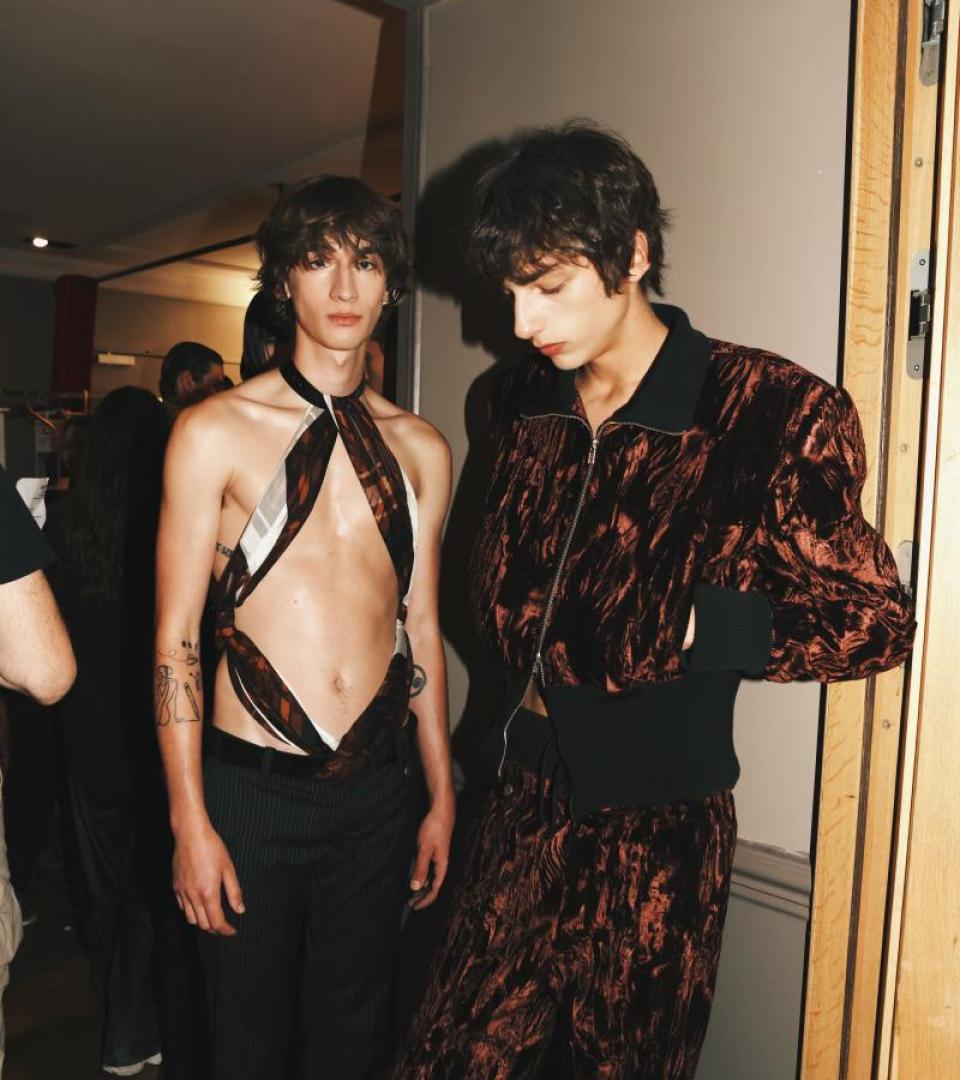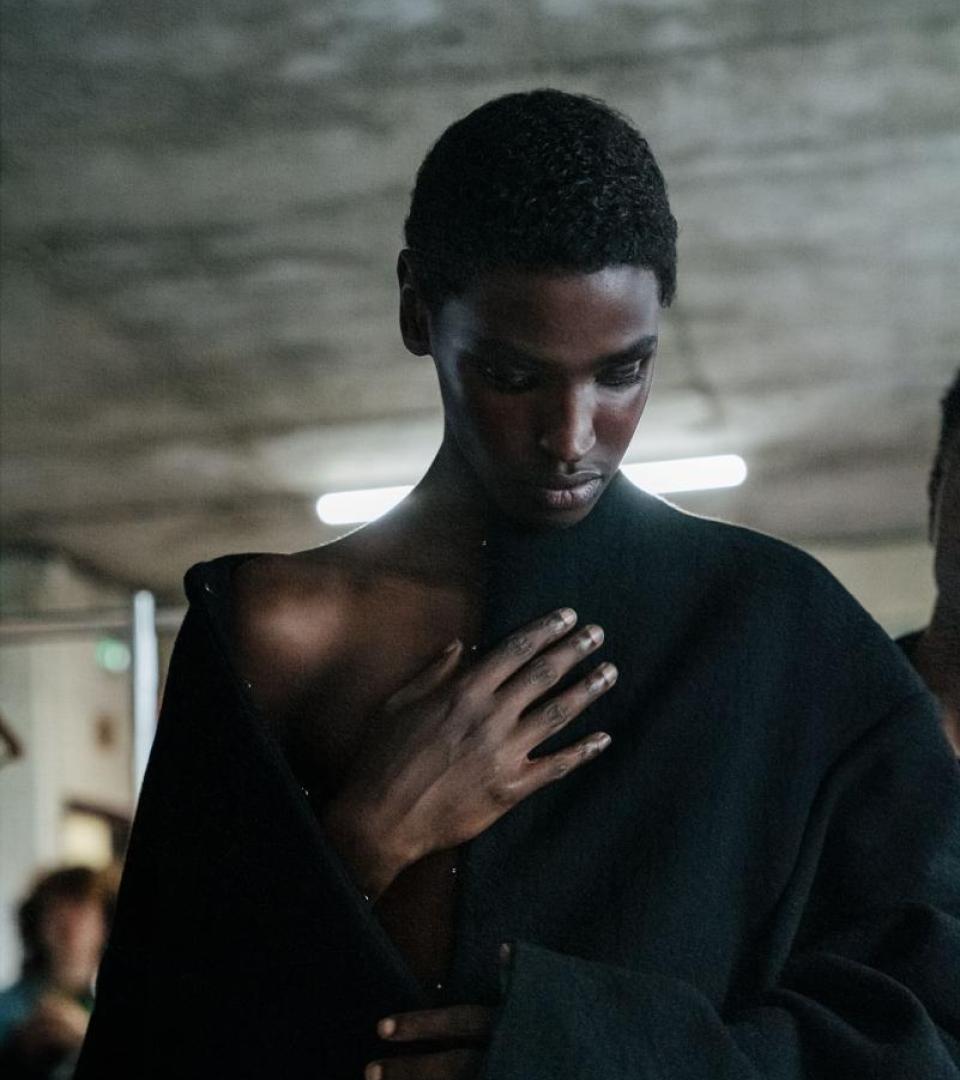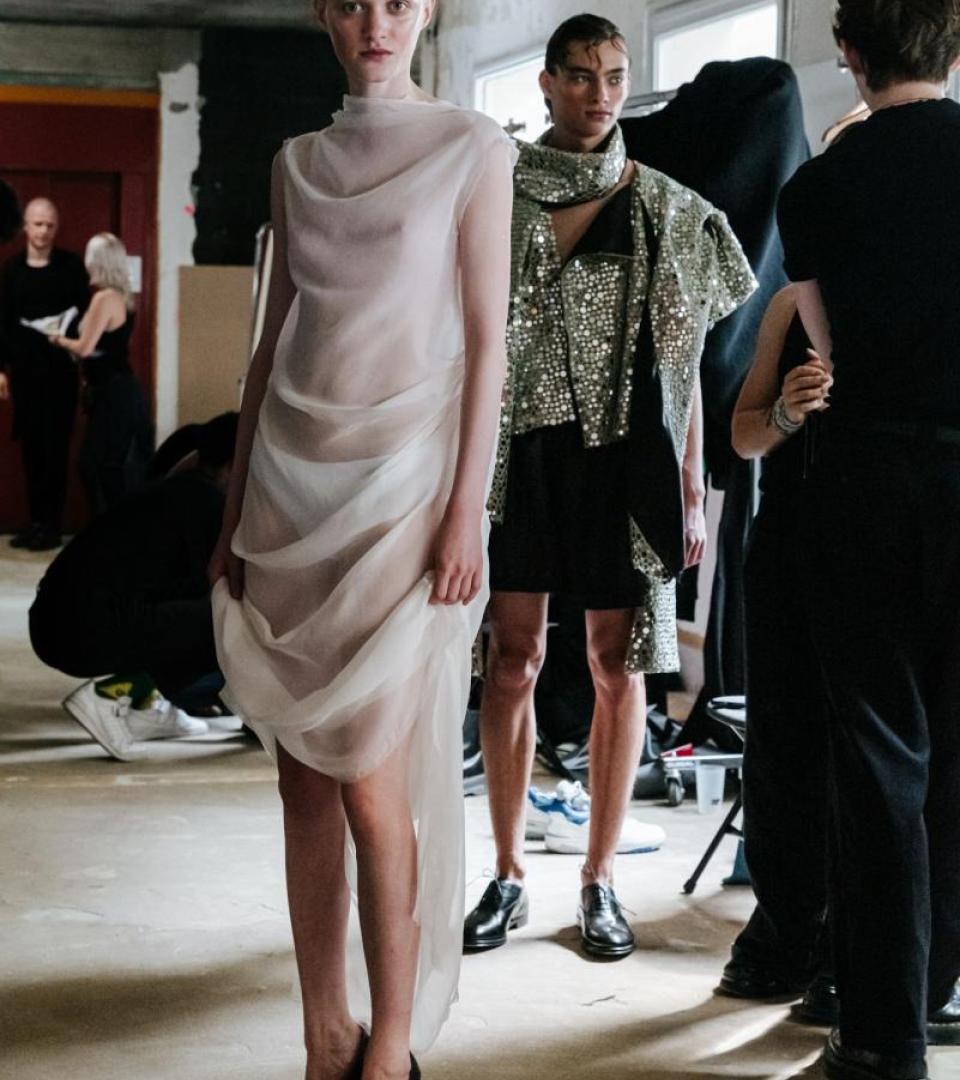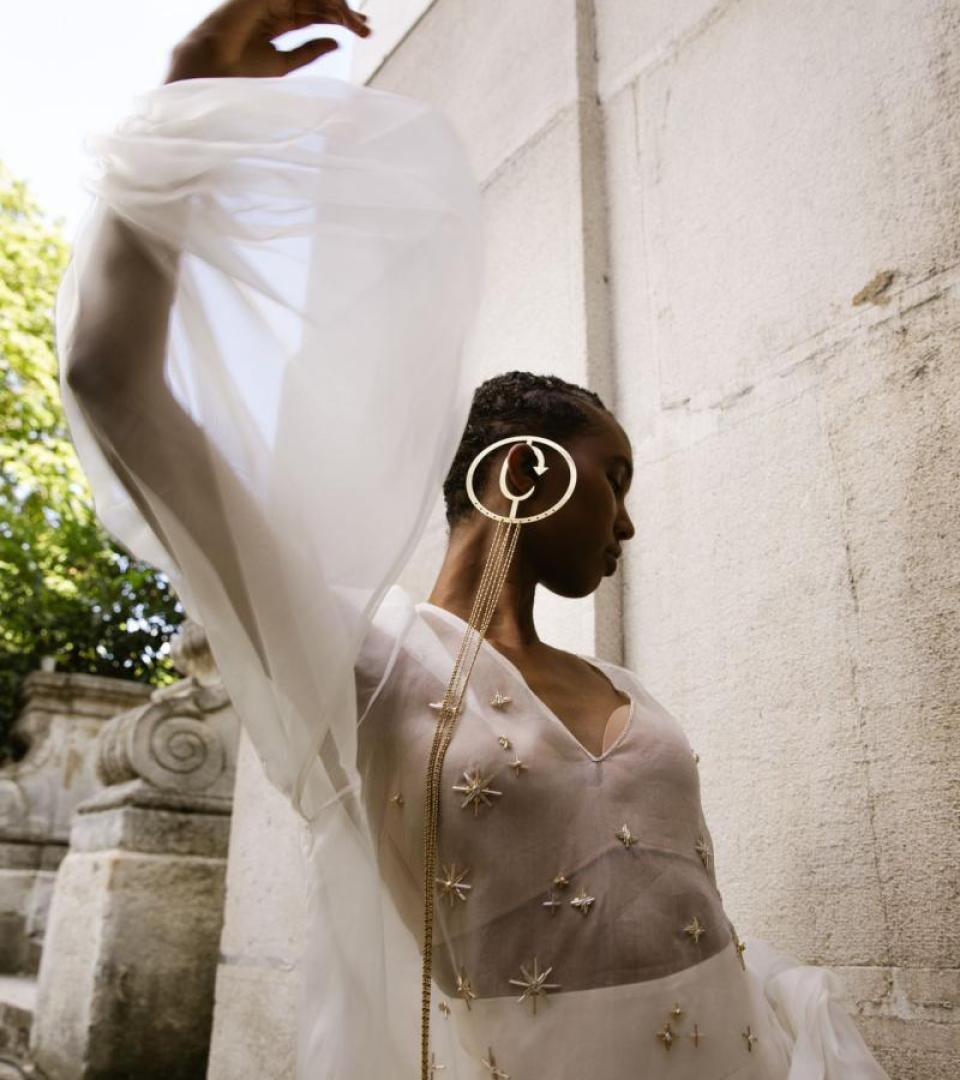What are your thoughts about the significance of this season given so many major designer debuts?
Fashion is in a reboot era. We’re not just witnessing debuts, we’re witnessing auditions for relevance. A designer’s first show is now less about pleasing critics and more about proving they can cut through a relentless news cycle and resonate with consumers straight away. Debuts have become cliffhangers in the serialized drama of fashion.
What are the main elements that make your work unique?
I treat fashion like breaking news. NEWSFASH is a live wire: equal parts analysis, gossip, op-ed, and cultural critique. I bring insider literacy with outsider candor. Think of me as a translator between the runway and the For You page.
In what ways is AI helping you develop and realise ideas that might not have been previously possible?
AI is my unruly intern. It can’t replace instinct or taste, but it does help me streamline. I use it less for research and creative, more for admin and tech support.
What aspect of your work excites and stimulates you the most?
The speed. One minute I’m decoding a couture silhouette; the next I’m fact-checking a scandal, or speaking with a well-placed source. Fashion is never still, and neither am I. It suits me to work from planes, trains, automobiles, and my messy desks in the US and UK.
Fashion can often be a lab for ideas. How might fashion shows also be a lab for your own ideas?
Fashion shows are live experiments rife with symbolism. I’m as interested in the casting, the soundtrack, the set design, and who’s seated where as I am in the clothes. All of it is data. My job is to distill those signals into stories that resonate with my audience. I also love sharing the inner workings of my mind. Clothes speak to me. It’s a language that I became fluent in at a young age as I was exposed to a lot through my mother, who is a fashion designer. For generations my family has passed down the craft of sewing. While my seamstress skills are not the most advanced, I have found my own way to make things in the fashion space.
What is something that you believe will change over the course of the year?
The gatekeepers. They’ve already lost their monopoly; but this year, we’ll see an even greater redistribution of influence. Fashion conversations will start in the comments section and spiral upward, not the other way around. It’s perplexing to me when I see peers eschew innovation and new media. You are in the wrong industry if you are not constantly open to learning about what is new and next.
What do you enjoy most about Paris Fashion Week?
The contradictions. The glamour and the grit. The high stakes! Paris Fashion Week contains multitudes and that’s what makes it magic.
Do trends still matter?
Yes, but not in the old way. Trends are now conversational topics rather than wardrobe commandments. What often matters is not wearing the trend but knowing how to talk about it.
Given current uncertainties, in what ways do you see brands/houses effectively driving growth?
By behaving less like brands and more like broadcasters. Storytelling at scale—whether through shows, social, or side projects—is the growth engine. Luxury is now a content business as much as a product one.
What is your favourite way/word to compliment someone’s style?
I like to say, “You look smashing.”
Tell us something surprising about how you got to where you are today?
I once thought I’d be a lawyer. Instead, I cross-examine fashion. My career has been less a straight path than a collage of obsessions—journalism, criticism, storytelling—that somehow stitched together.
In what ways might you hope to have an impact on fashion this year?
By holding up a mirror. Fashion loves to project, but it rarely self-reflects. If my work sparks conversation, discomfort, or even a collective eye-roll that leads to insight, then I’ve done my job.
Can you share a mantra that speaks to this moment in time?
“Stay critical, stay curious.” Fashion thrives on both scrutiny and wonder. We need equal parts to keep it alive.
This interview has been lightly edited.



